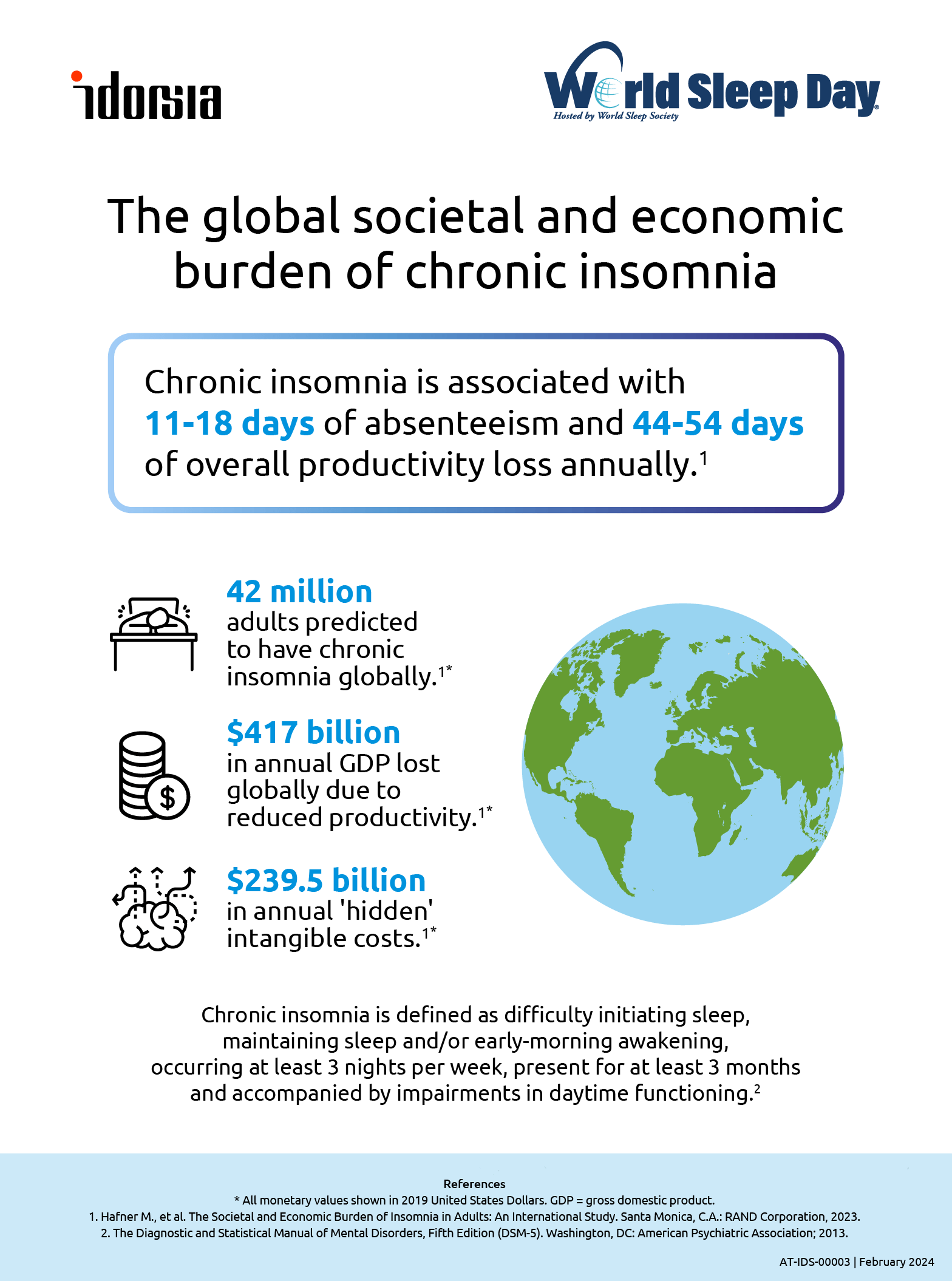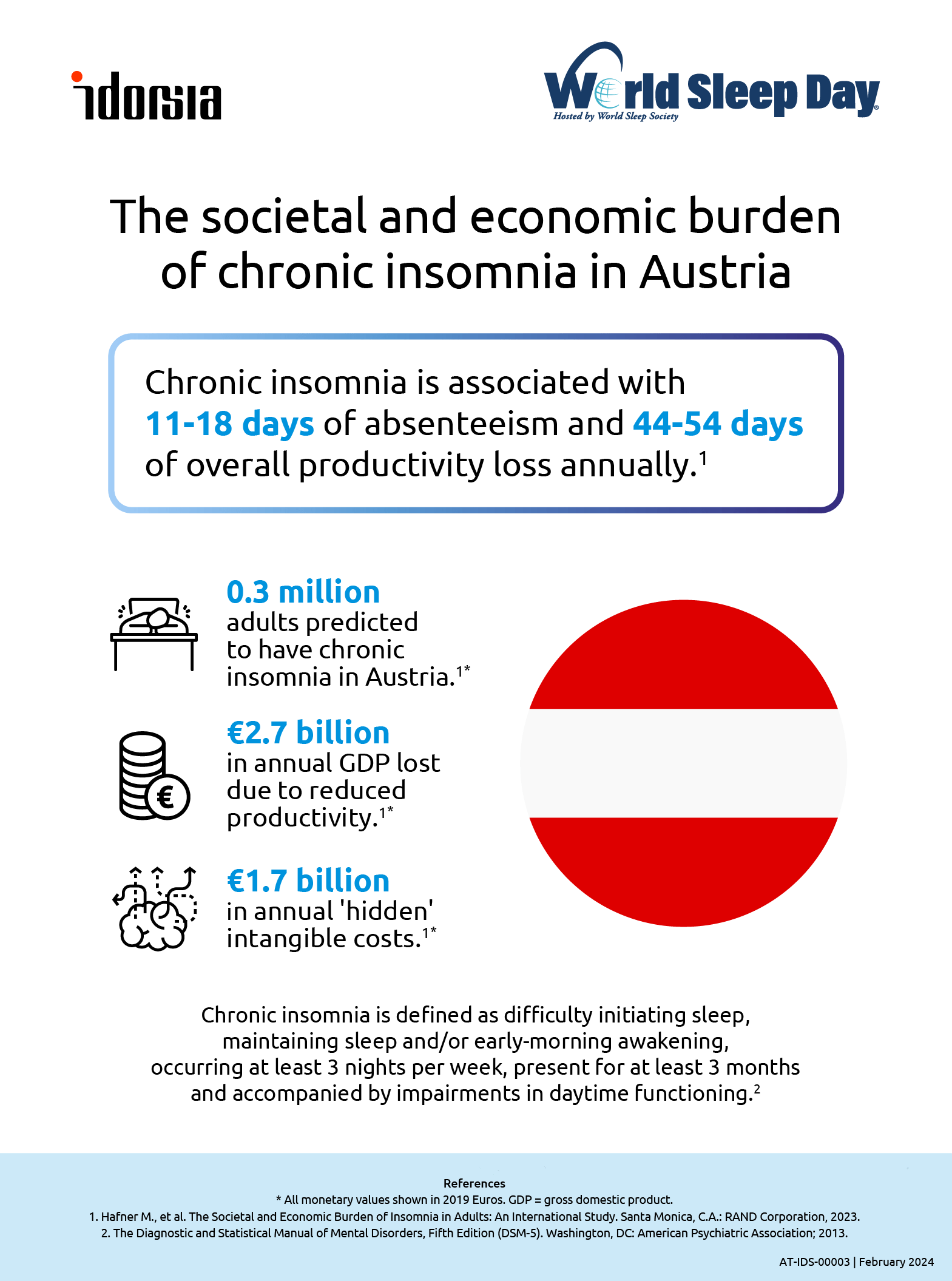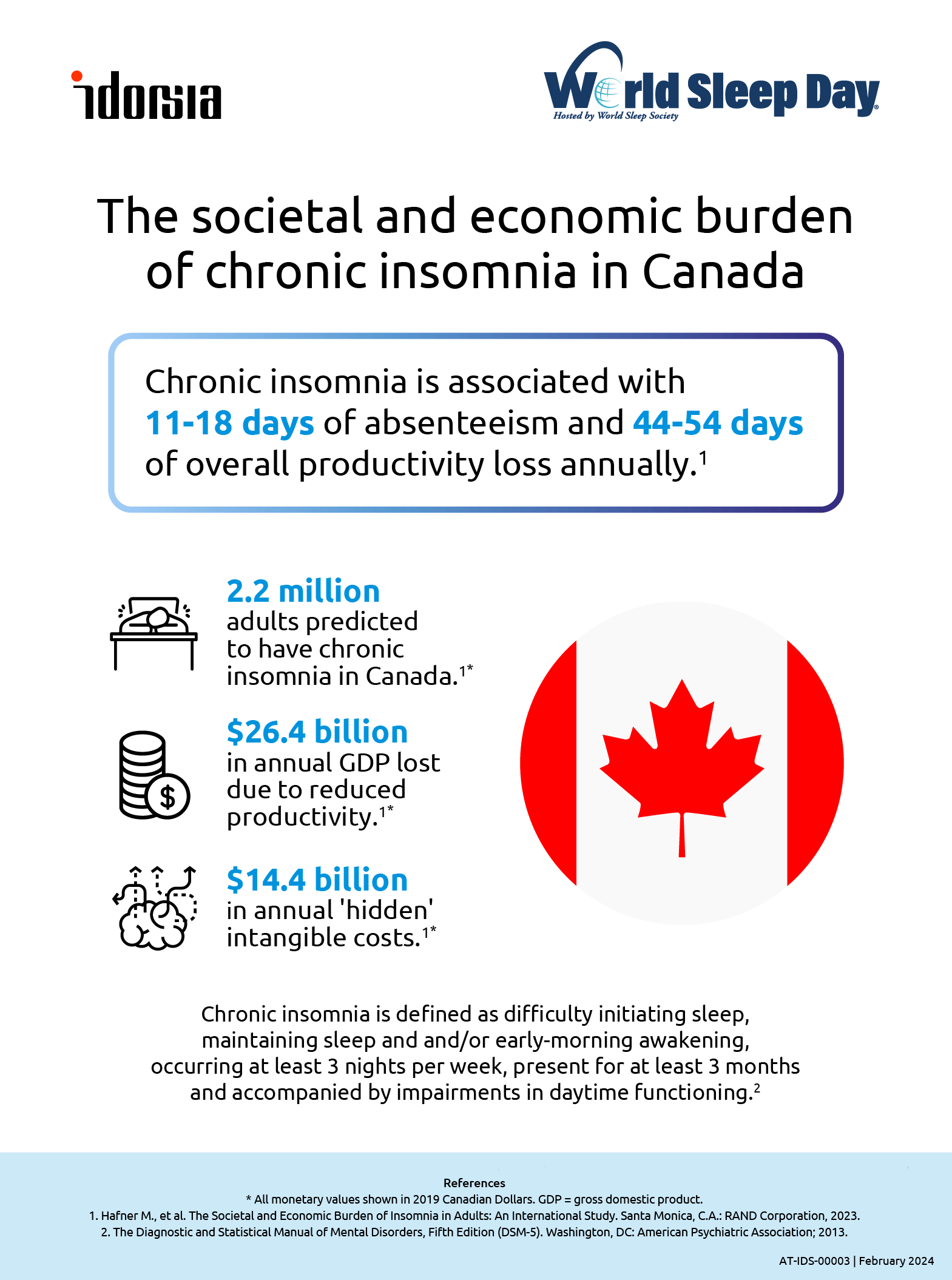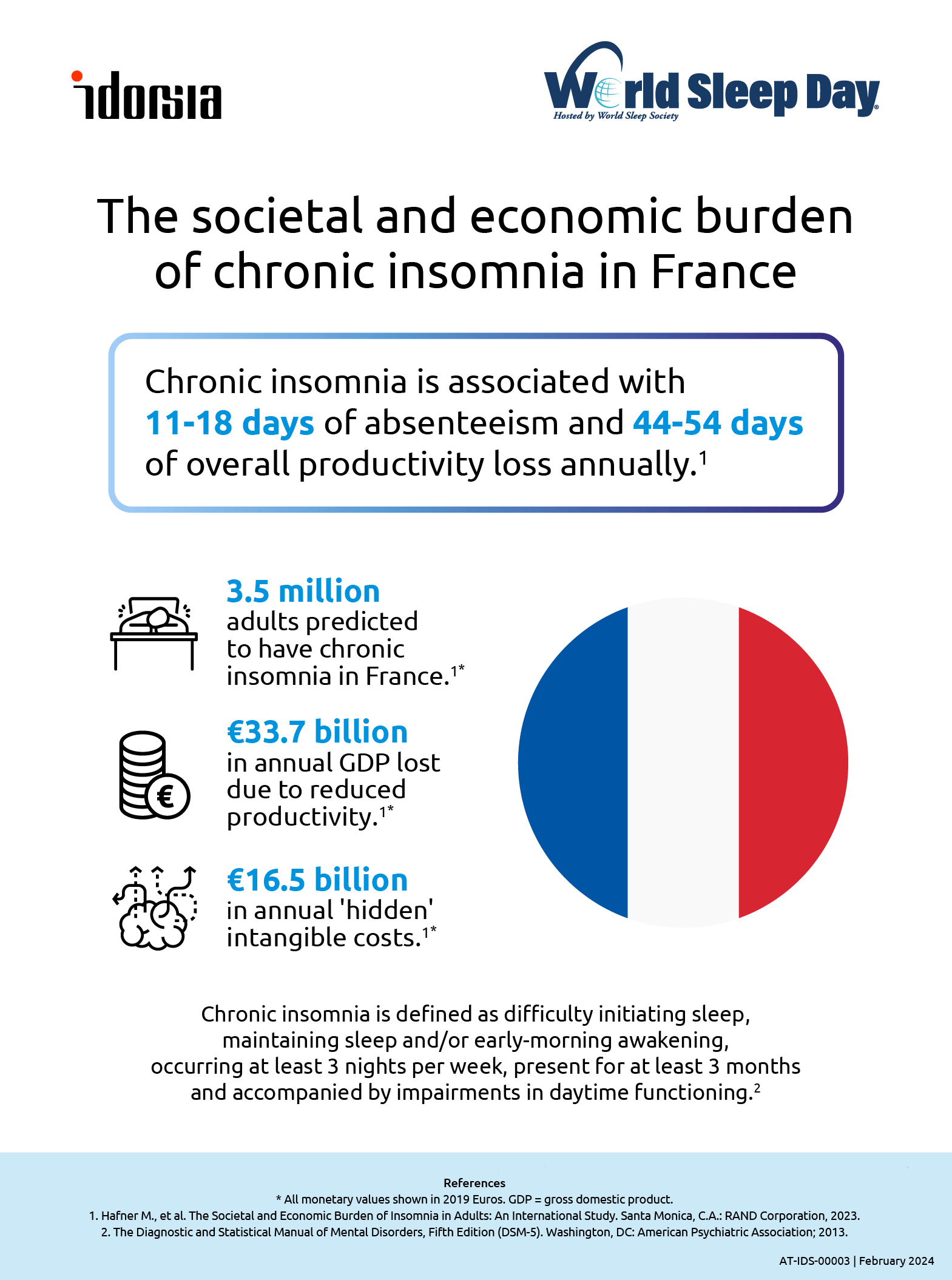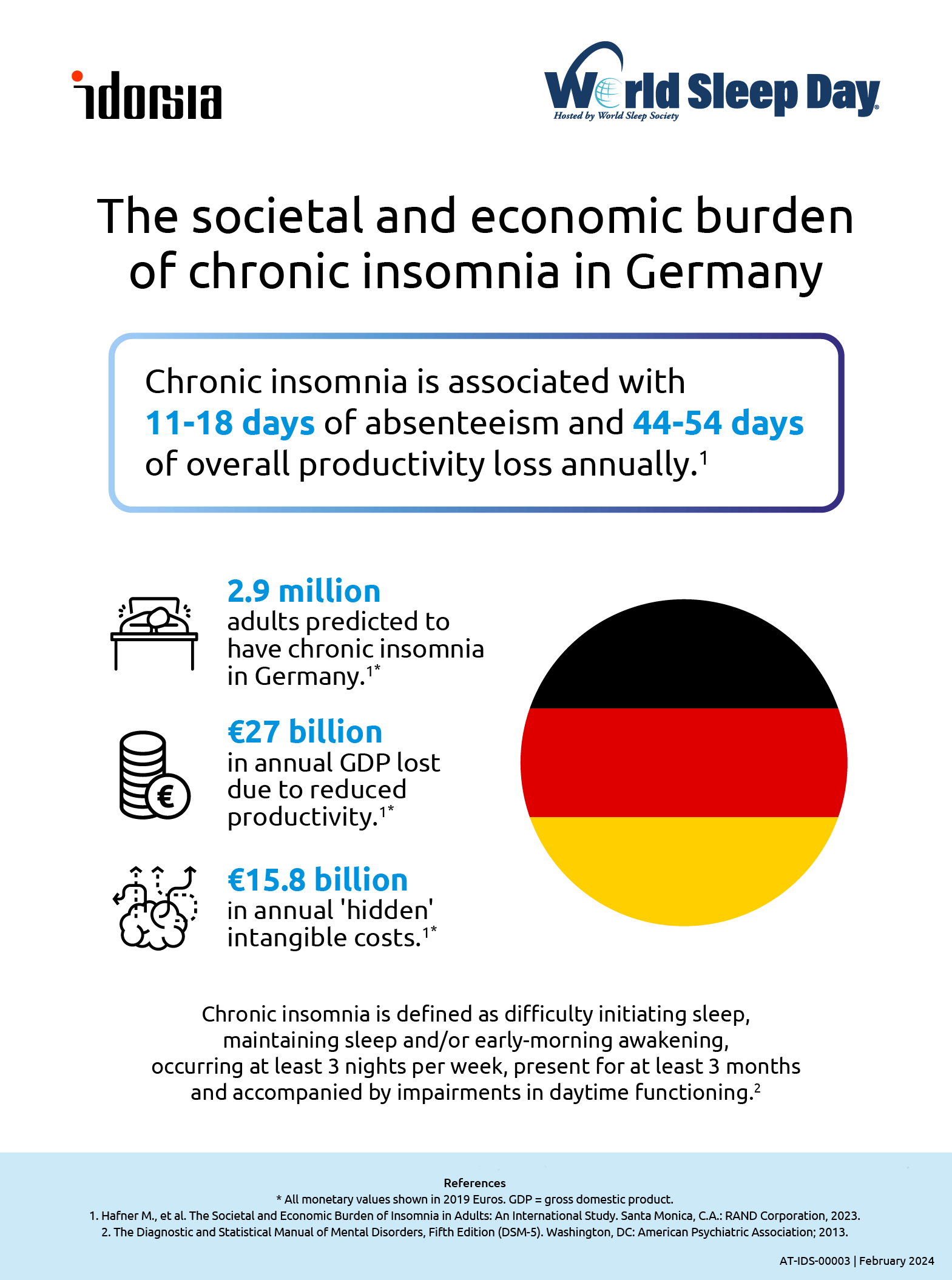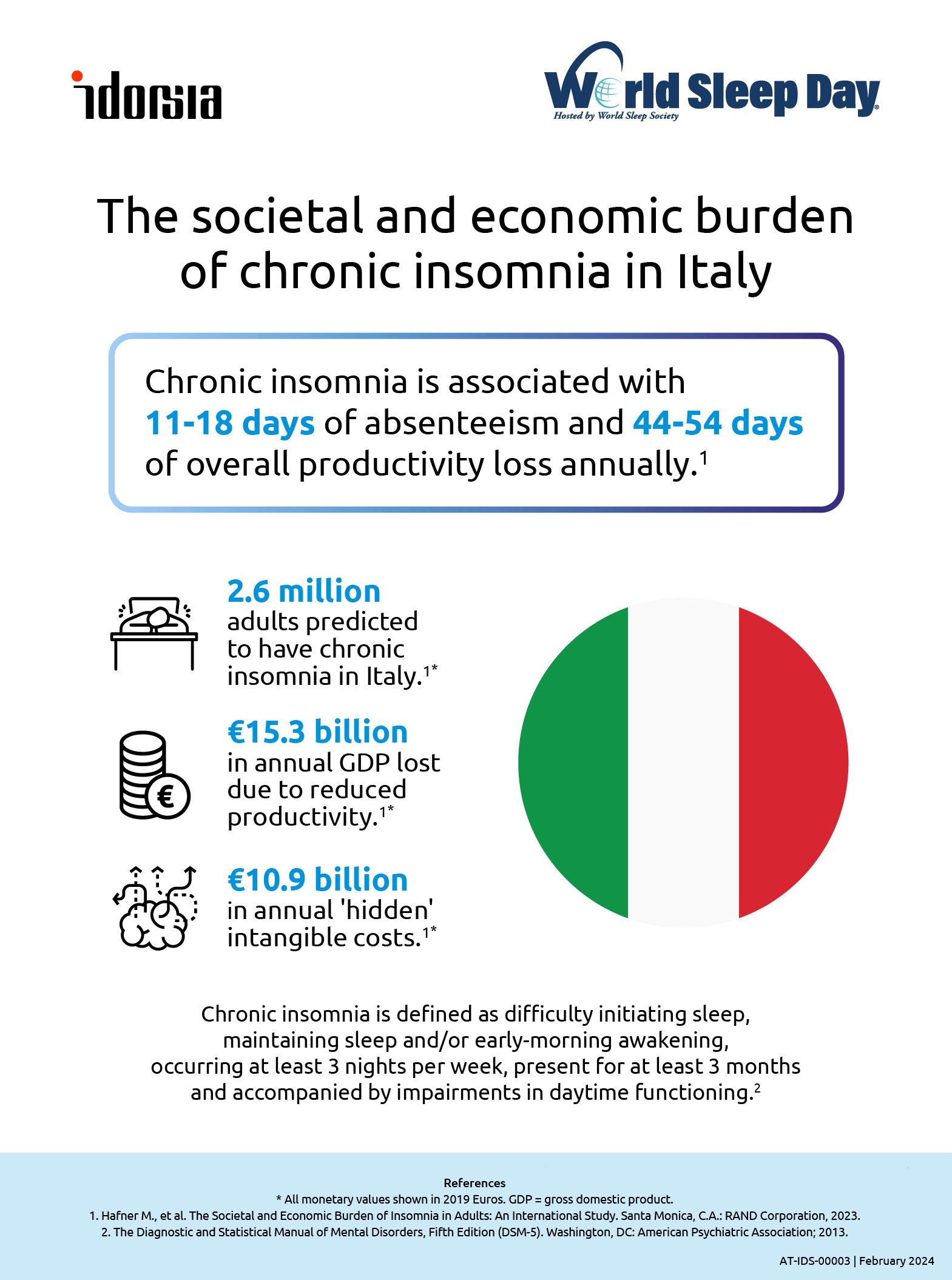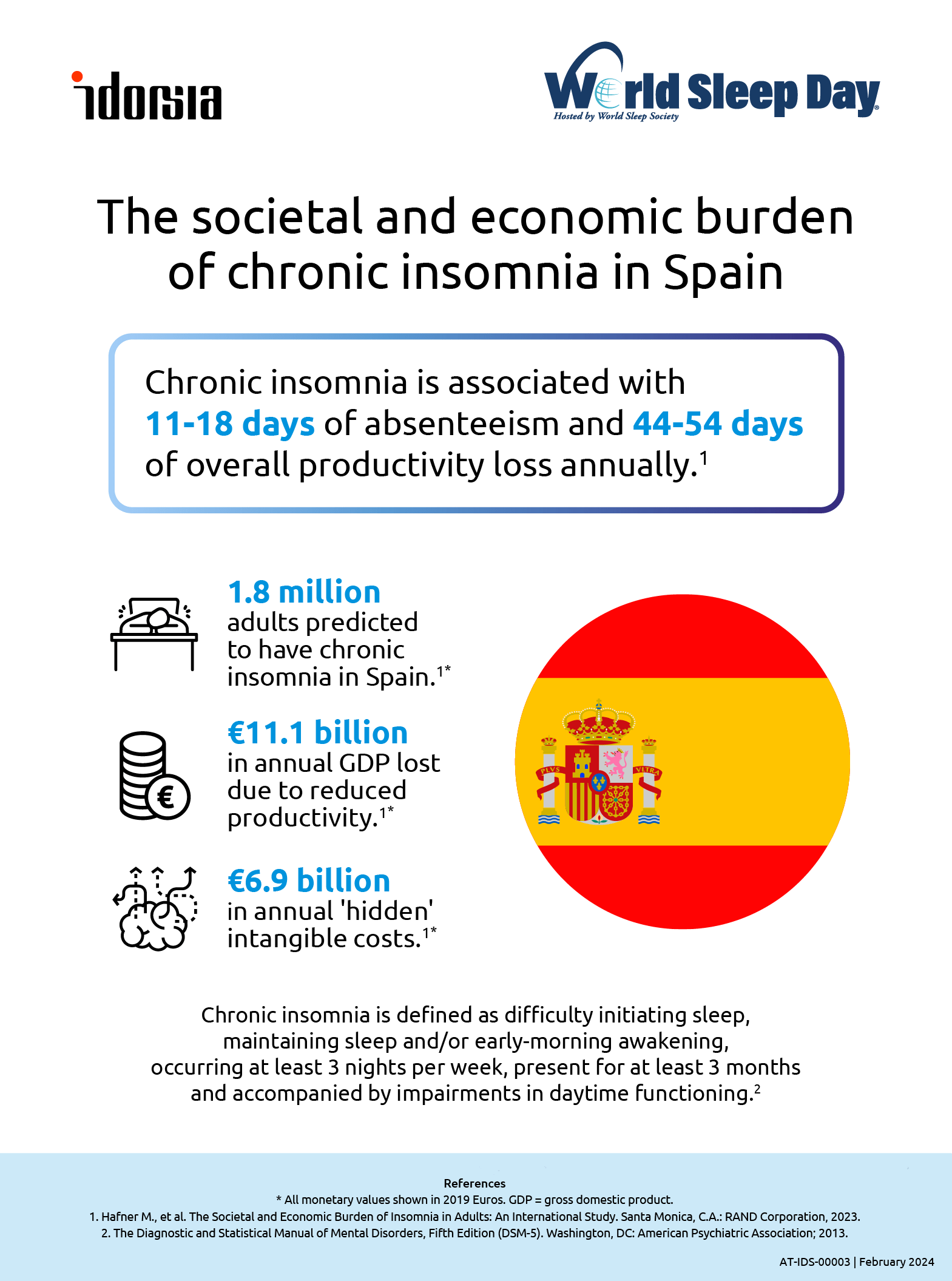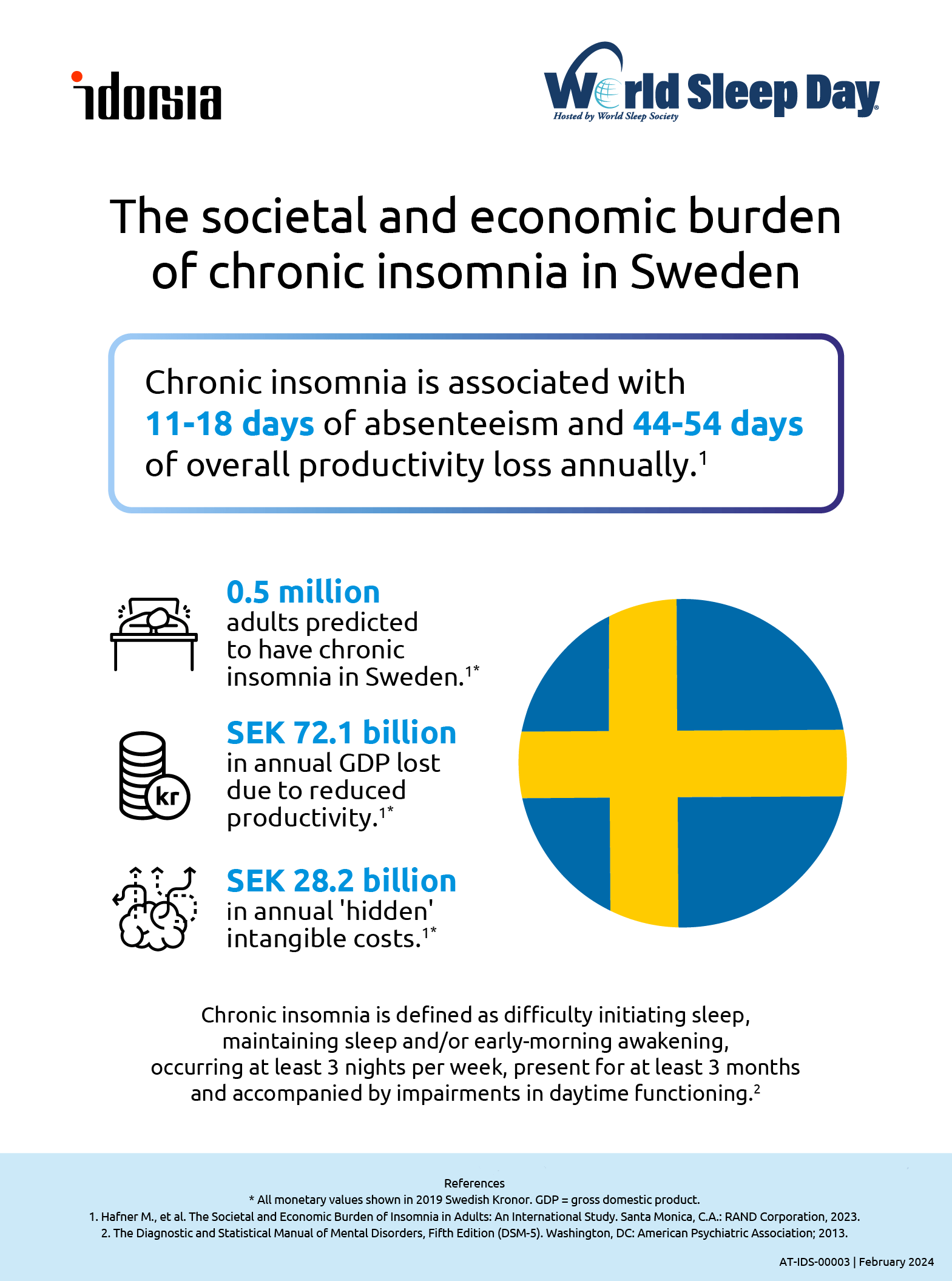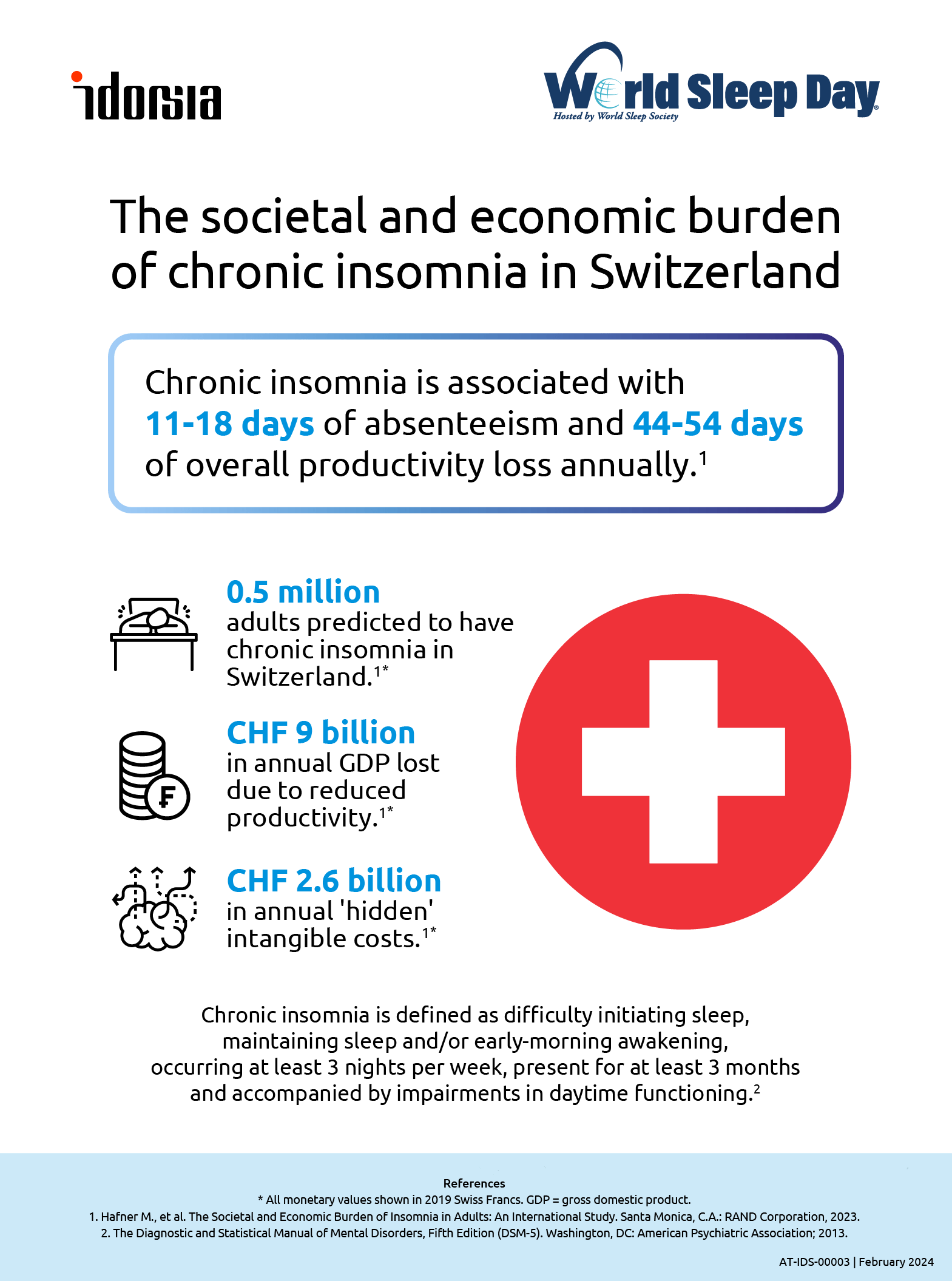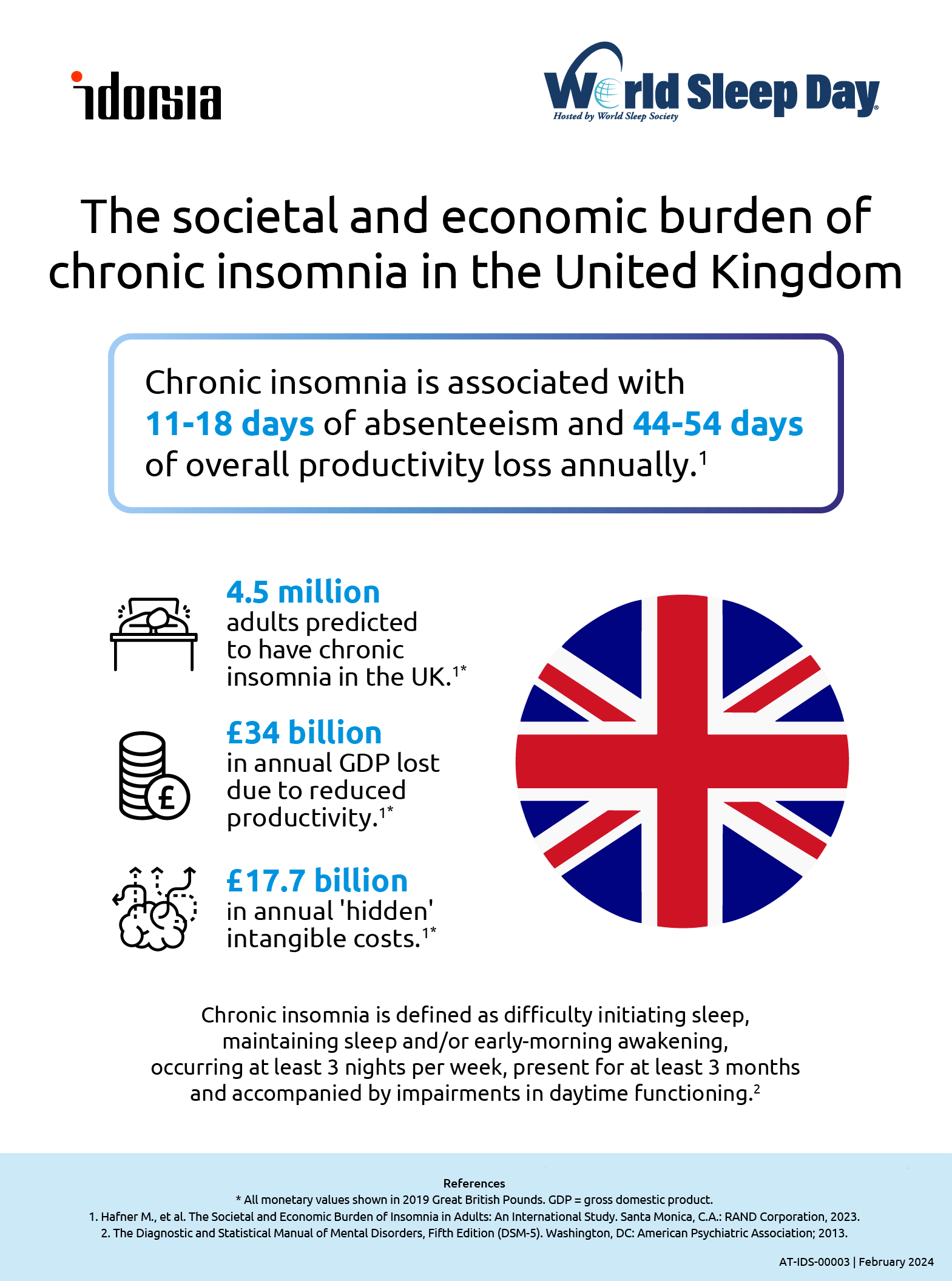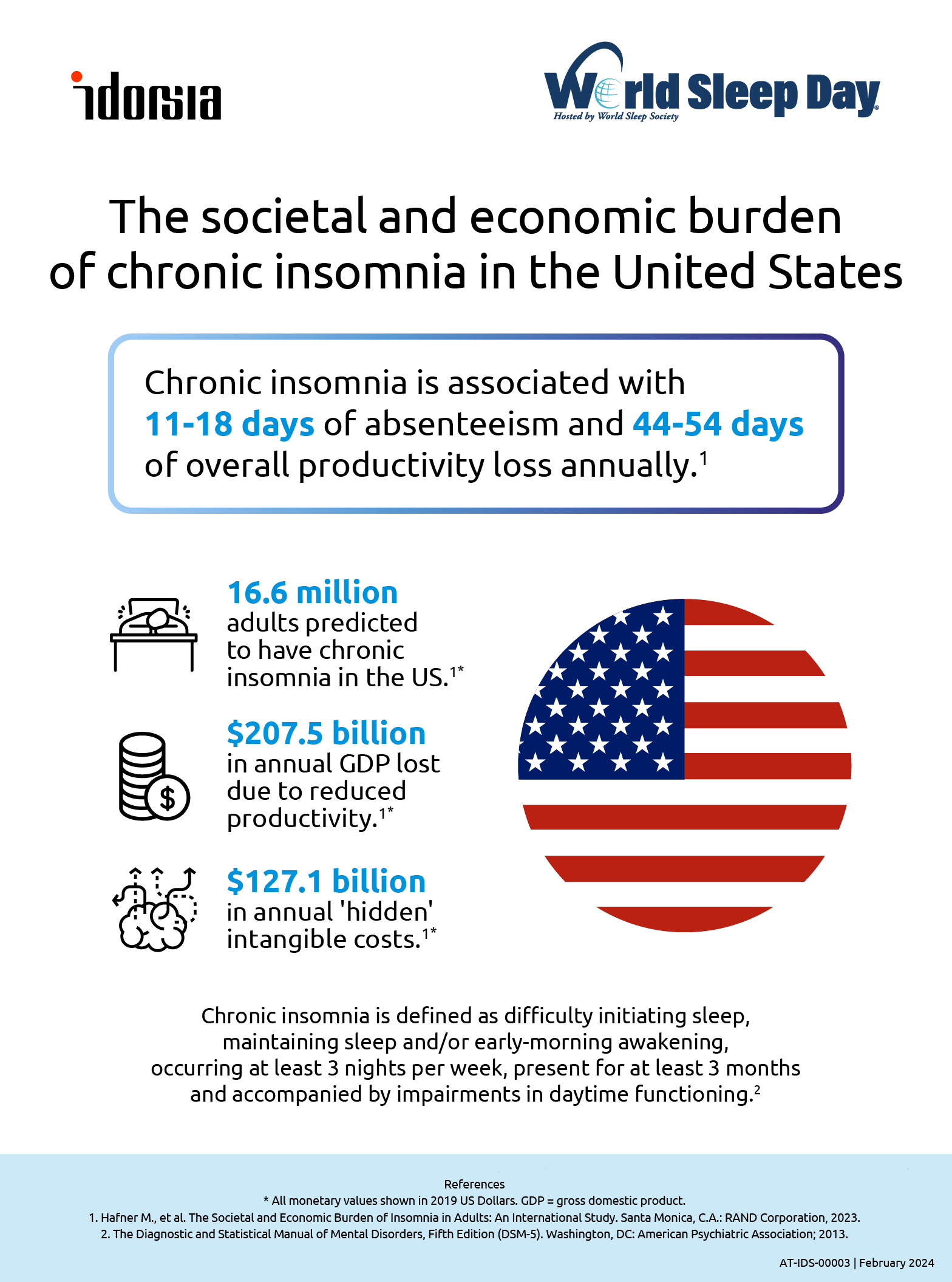The World Sleep Day toolkit provides free resources and guidance for you to help plan your World Sleep Day activities. Scroll through the page or click an item below to jump to a section. When you’re ready, submit your activity to let us know what you’re doing for World Sleep Day 2024!
Table of Contents
Commentary from World Sleep Day Leadership
Key Messaging for World Sleep Day 2024
Sleep Equity for Global Health
World Sleep Day 2024 is Friday, March 15 and incorporates the theme Sleep Equity for Global Health.
Because sleep is essential to health, everyone must have access to adequate sleep regardless of location, socioeconomic status, environmental conditions and disruptions, social structures and histories, community and interpersonal relationships, and individual beliefs and behaviors.
The consequences of global sleep health disparities are significant. Individuals and families are harmed by unnecessary burdens on their health, and sleep health inequities only reinforce the marginalization of populations worldwide.
Addressing sleep equity will reduce these sleep disparities and will contribute to improving human health and wellness around the globe. World Sleep Society is using World Sleep Day 2024 to celebrate healthy sleep and the transformative power that it can have on one’s life.
Join us in celebrating sleep health on March 15, 2024!
What is World Sleep Day?
Created and hosted by World Sleep Society, World Sleep Day is an internationally recognized event that builds connections and raises sleep health awareness among researchers, health care workers, patients, and the public. Participants from each of these stakeholder groups organize sleep health awareness activities in their local clinics, institutions, companies, and communities.
Activity organizers submit their activities to the official website of World Sleep Day at worldsleepday.org. Submitting your activity helps to promote it and to save it for the historical record. Submitted activities are automatically considered for the Distinguished Activity Award, an annual award distributed to a short list of activities as determined by the World Sleep Day committee. Browse our list of award-winning activities for inspiration to organize your own!
The World Sleep Day Committee is co-chaired by Dr. Fang Han (China) and Dr. Lourdes DelRosso (United States).
Commentary from World Sleep Day Leadership
“World Sleep Day is the perfect opportunity to combine efforts towards sleep awareness, education, outreach, and community engagement that work toward reducing sleep disparities and ensuring equitable access to healthy sleep for everyone.” – Dr. Lourdes DelRosso, co-chair of World Sleep Day
“The causes of sleep health disparities warrant careful study. Strategies to lessen these disparities could prove to be a very powerful tool in increasing health and wellness worldwide.” – Dr. Fang Han, co-chair of World Sleep Day
“Numerous members and proponents of the World Sleep Society are actively participating in World Sleep Day 2024. They are engaging with their communities, fostering connections, and augmenting awareness regarding the importance of sleep health among millions worldwide. We invite you to join our global movement dedicated to advancing the cause of optimal sleep health!” – Dr. Raffaele Ferri, president of World Sleep Society
Key Messaging for World Sleep Day 2024
Key Message 1: Sleep is essential to health.
Sleep is a critical pillar of health, like nutrition and physical activity [1, 2].
- Sleep helps support memory and learning [3].
- Sleep helps clear waste from the brain and promote brain health [4].
- Sleep supports brain health, and brain health supports sleep [5].
- Sleep supports immune health, and immune health supports sleep [6].
- Sleep helps the immune system to clear bacteria and viruses [6].
- Sleep helps to recycle old cells and maintain our bodies and energy levels [7].
Poor sleep health can have multiple significant impacts on human health.
- Poor sleep has been linked to obesity [8], diabetes [9], coronary artery disease, and cardiovascular mortality [10].
- Poor sleep can lower immune response, creating greater susceptibility to infections that further reduce sleep quality [4].
- Certain sleep disorders like obstructive sleep apnea and rapid eye movement sleep behavior disorder are associated with cognitive impairment [11], dementia [12], risk of seizures [13], and increased risk of stroke [14].
- Poor sleep can result in reduced reaction times, impaired judgment, and cognitive impairment similar in effect to alcohol intoxication [15].
- Drowsiness can impair safe driving even if the driver does not fall asleep [16].
Key Message 2: Sleep health is multidimensional.
“Healthy sleep” means more than simply “enough sleep.” There are six dimensions that affect sleep health and consequently overall health and wellbeing.
Organizing “healthy sleep” into distinct aspects offers sleep health advocates more focused messaging that promotes healthy sleep behaviors.
The six dimensions of sleep health are the following:
- Duration: how much did you sleep over 24 hours?
- Efficiency: how well do you fall asleep and stay asleep?
- Timing: when do you sleep?
- Regularity: do you have consistent sleep and wake times?
- Alertness: do you maintain good focus and attention during waking hours?
- Quality: do you feel satisfied with your sleep?
Key Message 3: We must address sleep health disparities to improve the health of populations across the world.
“Sleep health disparities” are defined by persistent differences in one or more of the sleep health dimensions that adversely affect a population [17], and examples of such disparities have been identified and measured in recent years [18].
The effects of sleep health disparities become clear when one considers the fundamental role of sleep in human health and wellness (see Key Message 1 and associated references).
The causes for these disparities can be both social (e.g., psychological stress, financial strain, hunger, threats to safety) and environmental (e.g., light, temperature, noise, air quality) [19].
Resources on Healthy Sleep
World Sleep Society produces educational content regarding sleep health across multiple programs in addition to World Sleep Day. Find some examples below and incorporate them into your World Sleep Day content and messaging.
Healthier Sleep Magazine – a magazine written and reviewed by sleep experts for the public. Issue topics have included sleep disorders, travel & sleep, pediatric sleep, and more. Find all the Healthier Sleep content and complete issues at healthiersleepmag.com.
Sleep Expo – public lectures from international sleep experts. The first Sleep Expo was held in Vancouver in 2019. Find video recordings of all the public lectures on YouTube. Below are the topics discussed by experts:
- How to know if you have a sleep disorder
- Why am I sleepy during the day?
- Why do I keep falling asleep?
- Falling asleep at the wheel
- Insomnia treatments and therapies
- Parkinson’s, dementia, and the elderly
- Managing sleep disorders in infants to adolescents
- Women and sleep: pregnancy to menopause
- Sleep apnea diagnosis and treatments
- Restless legs syndrome causes and treatments
- Sleep, insomnia, and depression
- Can my dentist help me sleep?
- How sleep can affect your health
- Sleep walking, night terrors, and nightmares
- Effect of sleep on sports performance and sports injuries
The wider socioeconomic impact of insomnia
Understanding the wider societal burden of sleep disorders, such as insomnia, can help raise awareness of the value in addressing sleep disparities. Findings from a report conducted by RAND Europe and funded by Idorsia Pharmaceuticals Ltd reveals the global ‘hidden’ cost of chronic insomnia across 16 countries. The findings show that chronic insomnia is associated with reduced productivity in the workplace and, consequently, a substantial loss to annual GDP globally [20].
Scroll below to see the findings reported in countries across Europe, Canada and the United States.
The report also includes the topic of sleep health equity and outlines policy, clinical and research recommendations that if implemented could help reduce the burden of insomnia globally [20]. Access the report at: https://www.rand.org/randeurope/research/projects/societal-and-economic-burden-of-insomnia.html.
The benefits of a good night’s sleep extend to both the individual and society. This World Sleep Day, it’s time to reframe thinking about sleep health and equity.
For more information on insomnia, visit: https://www.idorsia.com/our-innovation/target-diseases/insomnia
Logo Use
Become a World Sleep Day delegate to receive the logos for World Sleep Day 2024. The official logos are made freely available to all World Sleep Day delegates for their World Sleep Day activities.
Companies and organizations must receive written approval from World Sleep Society before using the logo. A formal agreement may be required for a company to use the World Sleep Day name, logo, or other content in their materials.
All usage of the World Sleep Day logo must conform to the World Sleep Day Brand Guidelines provided with the logos.
Media Contact and Expert Availability for Interviews & Commentary
Select members of World Sleep Society may be available to take your request for an interview or commentary. Sleep researchers and clinicians across 80+ countries comprise the World Sleep Society membership. If you would like to connect with a sleep expert for a brief interview or commentary, contact World Sleep Society at [email protected].
In your request for a sleep expert, include:
- Your publication, network, or platform
- Your topic of interest
- Your intended audience for the piece
- Your availability in multiple time slots in the coming weeks
Our members are volunteers who often have busy clinical and research schedules, so scheduling ahead of time helps greatly when securing an interview. World Sleep Society and its representatives do not endorse or recommend any particular services or products.
Speaker Availability for Your Event
World Sleep Society experts can also be available to speak at a public or private event on a topic of sleep health. A formal World Sleep Day agreement between the event organizer and World Sleep Society may be required. For more information, see worldsleepsociety.org/sponsor or contact [email protected].
The History of World Sleep Day
The first World Sleep Day was held on March 14, 2008 under the slogan “Sleep Well, Live Fully Awake.” The annual awareness day is held the Friday before Spring Vernal Equinox.
Previous Slogans
- “Sleep Well, Live Fully Awake” – March 14, 2008
- “Drive Alert, Arrive Safe” – March 20, 2009
- “Sleep Well, Stay Healthy” – March 19, 2010
- “Sleep Well, Grow Healthy” – March 18, 2011
- “Breathe Easily, Sleep Well” – March 16, 2012
- “Good Sleep, Healthy Aging” – March 15, 2013
- “Restful Sleep, Easy Breathing, Healthy Body” – March 14, 2014
- “When Sleep is Sound, Health and Happiness Abound” – March 13, 2015
- “Good Sleep is a Reachable Dream” – March 18, 2016
- “Sleep Soundly, Nurture Life” – March 17, 2017
- “Join the Sleep World, Preserve Your Rhythms to Enjoy Life” – March 16, 2018
- “Healthy Sleep, Healthy Aging”– March 15, 2019
- “Better Sleep, Better Life, Better Planet”– March 13, 2020
- “Regular Sleep, Healthy Future”– March 19, 2021
- “Healthy Sleep, Sound Mind, Happy World” – March 18, 2022
- “Sleep is Essential to Health” – March 17, 2023
References
[1] Cassidy S, Chau JY, Catt M, et al. Cross-sectional study of diet, physical activity, television viewing and sleep duration in 233,110 adults from the UK Biobank; the behavioural phenotype of cardiovascular disease and type 2 diabetes. BMJ Open 2016; 6: e010038
[2] Hale L, Troxel W, Buysse DJ. Sleep Health: An Opportunity for Public Health to Address Health Equity. Annu Rev Public Health. 2020;41:81-99. doi:10.1146/annurev-publhealth-040119-094412
[3] Reyes-Resina I, Samer S, Kreutz MR, et al. Molecular Mechanisms of Memory Consolidation That Operate During Sleep. Front Mol Neurosci 2021; 14: 767384. 2021/12/07. DOI: 10.3389/fnmol.2021.767384
[4] Nedergaard M and Goldman SA. Glymphatic failure as a final common pathway to dementia. Science 2020; 370: 50-56. 2020/10/03. DOI: 10.1126/science.abb8739
[5] Ju YE, Lucey BP and Holtzman DM. Sleep and Alzheimer disease pathology–a bidirectional relationship. Nat Rev Neurol 2014; 10: 115-119. 2013/12/25. DOI: 10.1038/nrneurol.2013.269
[6] Haspel JA, Anafi R, Brown MK, et al. Perfect timing: circadian rhythms, sleep, and immunity – an NIH workshop summary. JCI Insight 2020; 5 2020/01/17. DOI: 10.1172/jci.insight.131487
[7] Min S, Masanovic B, Bu T, et al. The Association Between Regular Physical Exercise, Sleep Patterns, Fasting, and Autophagy for Healthy Longevity and Well-Being: A Narrative Review. Front Psychol 2021; 12: 803421. 2021/12/21. DOI: 10.3389/fpsyg.2021.803421
[8] Covassin N, Singh P and Somers VK. Keeping Up With the Clock: Circadian Disruption and Obesity Risk. Hypertension 2016; 68: 1081-1090. 2016/09/14. DOI: 10.1161/HYPERTENSIONAHA.116.06588
[9] Itani O, Jike M, Watanabe N, et al. Short sleep duration and health outcomes: a systematic review, meta-analysis, and meta-regression. Sleep Med 2017; 32: 246-256. 2016/10/17. DOI: 10.1016/j.sleep.2016.08.006
[10] Covassin N and Singh P. Sleep Duration and Cardiovascular Disease Risk: Epidemiologic and Experimental Evidence. Sleep Med Clin 2016; 11: 81-89. 2016/03/15. DOI: 10.1016/j.jsmc.2015.10.007
[11] Lim AS, Kowgier M, Yu L, et al. Sleep Fragmentation and the Risk of Incident Alzheimer’s Disease and Cognitive Decline in Older Persons. Sleep 2013; 36: 1027-1032. 2013/07/03. DOI: 10.5665/sleep.2802
[12] Wennberg AMV, Wu MN, Rosenberg PB, et al. Sleep Disturbance, Cognitive Decline, and Dementia: A Review. Semin Neurol 2017; 37: 395-406. 2017/08/25. DOI: 10.1055/s-0037-1604351
[13] Bonilla-Jaime H, Zeleke H, Rojas A, et al. Sleep Disruption Worsens Seizures: Neuroinflammation as a Potential Mechanistic Link. Int J Mol Sci 2021; 22 2021/11/28. DOI: 10.3390/ijms222212531
[14] Koo DL, Nam H, Thomas RJ, et al. Sleep Disturbances as a Risk Factor for Stroke. J Stroke 2018; 20: 12-32. 2018/02/07. DOI: 10.5853/jos.2017.02887
[15] Williamson AM and Feyer AM. Moderate sleep deprivation produces impairments in cognitive and motor performance equivalent to legally prescribed levels of alcohol intoxication. Occup Environ Med 2000; 57: 649-655. 2000/09/13. DOI: 10.1136/oem.57.10.649
[16] American Academy of Sleep Medicine Board of Directors, Watson NF, Morgenthaler T, et al. Confronting Drowsy Driving: The American Academy of Sleep Medicine Perspective. J Clin Sleep Med. 2015;11(11):1335-1336. Published 2015 Nov 15. doi:10.5664/jcsm.5200
[17] Jackson CL, Walker JR, Brown MK, Das R, Jones NL. A workshop report on the causes and consequences of sleep health disparities. Sleep. 2020;43(8):zsaa037. doi:10.1093/sleep/zsaa037
[18] Hale L, Troxel W, Buysse DJ. Sleep Health: An Opportunity for Public Health to Address Health Equity. Annu Rev Public Health. 2020;41:81-99. doi:10.1146/annurev-publhealth-040119-094412
[19] Lim DC, Najafi A, Afifi L, et al. The need to promote sleep health in public health agendas across the globe. Lancet Public Health. 2023;8(10):e820-e826. doi:10.1016/S2468-2667(23)00182-2
[20] Hafner, M., et al. The Societal and Economic Burden of Insomnia in Adults: An International Study. Santa Monica, C.A.: RAND Corporation, 2023.

